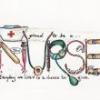Search the Community
Showing results for 'reactive hypo'.
Found 1,426 results
-
Okay so this is getting really annoying. I have posted 3 blogs that have disappeared. =( Anyway, I have had a rough last couple of weeks. My grandmother is really ill and was in the hospital for a few days. Her liver is screwin up big time. I have gotten her into a different doctor because the one she was seeing is a quack and shouldn’t have a license. I am the only one close that can take care of her. And I’m pretty sure she is ready to give up. But I don’t want her to yet. She has to see my babies, if that ever happens, and see me finish RN school. DH was also sick. He has chemical pneumonitis and Reactive Airway Disease. He couldn’t breathe and went to the ER. They wanted to admit him but he refused and took an AMA. So they gave him breathing treatments, that we couldn’t afford, and steroids. So other than that drama. I have lost a couple more pounds. I talked to my doc, who was on my floor seeing another patient, and he said that 1 pound a week is plenty of weight loss. So that made me think about how much weight I have been losing. I started counting my calories on a website and I am sooooo not taking in enough calories. We are supposed to take in like 1200-1800 right? I am not even sure but its hard to reach that with how little I am able to eat. I know that my diet says that I am supposed to eat 3 times a day and nothing in between meals but that’s just not possible. I am eating very small snacks every couple of hours. That has helped me up my calorie intake quite a bit. I am down 2 more pounds which I am very happy with. In a couple more weeks I can go in for a fill if I need one. I think I am doing pretty well without one, lol. But anyway I have to go to class now. Its not for another hour and a half but the roads are icy and people don’t know how to drive and parking is DREADFUL at my school.
-
I STILL eat snacks at 4.5 years out. I have to eat something every 3-4 hours to a) keep myself from overdoing it at meals and 2) keep my blood sugar stable. It's been known to crash & burn (reactive hypoglycemia).
-


Did doctor office call to check on you?
TheNewMrsR replied to cindyRH's topic in POST-Operation Weight Loss Surgery Q&A
My doctor called me about 48 hours after I got my lap band plus had given me his number in case I had any issues and said to call. That was several years ago. When my lap band was removed in February 2017, my current doctors office called me the following day to check on me. I appreciate the follow up and think it is very thoughtful of them to do this as I know it can be time consuming. But let's face it, there might be little things going on that we don't think anything about and by asking you a couple questions and giving you an opportunity to tell them how you feel you very well could proactively catch any post op complications before they get worse rather than wait a few days until you are miserable enough for feel justified to call them to ask if XYZ is normal. Better to be proactive rather than just reactive. 🤗 Sent from my XT1635-01 using BariatricPal mobile app -


Thyroid Issues Anyone? Hyperthyroid specifically post-op?
CanyonBaby replied to S(he) be(lie)ve(d)'s topic in Gastric Sleeve Surgery Forums
Interesting that you are losing hair with hyperthyroidism, I thought it was with hypothyroidism, which I have had since 1995. Hair loss was a big issue for me and as one of my major symptoms. It resolved itself quickly once I went on the Synthroid. I wonder if you have had the thyroid issue prior to your surgery, but were just unaware, as these things tend to creep up very quietly? I have read that a lot of folks have (especially) hypothyroidism, but aren't aware of it, and attribute a lot of their symptoms to other things. Did you have your levels checked prior to surgery? Might want to ask about that. My sleeve surgery was 12/3/14, and as I have had the hypothyroidism AND hyperparathyroidism (including surgery for both issues), I am checked every 3 months. I have not had any changes in either case because of the sleeve surgery. Just was checked about 2 weeks ago, all is well there. The meds they prescribe for both hyper and hypo seem to take care of the issues, from what I have experienced, and from what I have heard from others, as well. Good luck to you! -
All us HYpos. Need to support each other..Im so worried it wont work...im doing everything tight I was sleeved 4/24. Lets all be each others support team...we are slow looser from what I read but truth is I was not looseing before sleeve I was gaining.13 lds last year 15 each year prior..so looseing steady even if its only 2 a week. Ill take iy...any one haveing issues with hiccups or gas in shoulder....also are u crushing your thyroid or taking hole.
-


Should I or Shouldn't I?
FluffyChix replied to Nis's topic in General Weight Loss Surgery Discussions
Wow! ((hugs)) You've been through the wringer backwards haven't you?!!! I don't know the answer to your question, but I do know you must do something. It can't hurt to start the process and schedule in a teaching hospital if possible. That way you may have more access to the surgeon to ask your questions. I do know you need to have your med issues sorted out prior to surgery...especially when they deal with thyroid and psych meds. But I don't think it's impossible. But I'm just a schmoe on the internet that makes crap up all damn day! I'm hypo. Take endocrine therapy to keep me in cancer remission. Have so many comorbidities and am on 3 bp drugs and still fight with blood pressure every day. My metabolism is crap. But I'm pursuing this surgery with the hopes that I will have a metabolic reset that might make it easier to lose the weight. Hang in there and congrats on fighting your way through the massive grief you've experienced. You're a fighter and survivor!!! -
Here is a link to an article on reactive hypoglycemia post–gastric bypass. https://www.ridgeviewmedical.org/services/bariatric-weight-loss/enewsletter-articles/reactive-hypoglycemia-postgastric-bypass The three most important things after surgery are fluids, Vitamins and Protein. Since you said that "when I drink Protein I throw instantly", have you tried MILK. 32 ounces of 1% milk fortified with 1 cup of powdered milk will give you 56 grams of protein. You cannot drink this all at once but spreading this out throughout the day will help you meet your daily protein requirement.
-


Hypothyroid Meds
Thinkingthinner1109 replied to Marielbx's topic in POST-Operation Weight Loss Surgery Q&A
I seemed to have developed hypo thyroidisym after surgery. My PCP didn't put me on anything yet. I just reached gaol and she wants to recheck it in a month. -
Try not to fret about exact numbers. Staying calm and focused will help. I am not getting enough Protein yet either. I also had a prolonged period of "starvation" mode. Trying tiny amounts of all sorts of foods can help boost your protein input. And might help with the hypos. Once your liquid diet is finished, and if your team allows it, concentrate on just nibbling things that your sleeve likes. I could tolerate some broth so continuously had the slow cooker on with beef and bones in it. I then slowly started adding tiny amounts of lentils. I also put carrots in as I can tolerate them. I always have some of that broth handy. It has both good protein and carbs in. Even if I can only drink the broth throughout the day, my body is getting nutrition. I also nibble on anything that might help boost my protein. Crackers with slivers of hard cheese, cheese crackers with cottage cheese, tiny apple (no skin) slivers dipped in Peanut Butter. Crispy (which turns mushy) textures seem to be tolerated by my sleeve. But as ill (with c diff) as I am, I still push my body to try different Proteins often. Even minute amounts of different foods will add up over 24 hours. I also found that I was in the routine of not eating anything from 6 pm to 9 am pre op, quite normal especially as I have reflux issues. But post op, it was so easy to become both dehydrated because of that routine and that I was going too long without anything going in on top of only a 300 calorie daily intake. So now I make sure that I have something as soon as I wake up (I keep Lucozade beside my bed just in case) and that I have something just before I go to sleep. I hope that helps. Hang in there. I do really understand how you are feeling. Stay calm, breathe, drink Water, nibble, sip broth. Even bone broth has protein in it. Push your food boundaries every day. Protein can come from a myriad of sources, think outside the box. It is now your sleeve, we don't all fit inside the regular sleeve "box" so explore (with caution), what works for you. If a food offends your sleeve this week, it's okay. You can try it again later. I keep trying with egg because I know it is valuable in protein. Egg drop Soup will work for me but I know that I must push my texture boundaries so I try deviled eggs. I really hate the waste so am learning to only prepare minute quantities where possible. You will be okay. Sent from my iPhone using the BariatricPal App
-
I missed my six month bandaversary which was 11/26. I was at my mom's who saw me for the first time since before my surgery. She was very suprised when I walked into baggage claim at DFW. I got a lot of positive reinforcement at her house (not from her but from everybody else). Since I decided to do lap band back in January I'v lost about 84 lbs. I'm under 200 for the first time in 6 years and I wear size 14 pants. My arms are horrendous and I am going to focus on them with a trainer (still in 16W), but I'm very very pleased with it all. I had a terrible Thanksgiving. I am still very reactive to stress, and I was stressed out that morning trying to get everything done. At 52, you would think I wouldn't feel like a bad child around my mom, but I do. I took the first tiny bite of mashed potatoes and it CAME RIGHT BACK UP. Luckily in my napkin, but it was like potato slime. Nothing else would work so I just pushed food aound my plate and pretended to eat but my aunt and daughter caught me. I got better by Friday but I realize how stress affects me. This never used to happen. I just got home last night and I feel somewhat better. We worked out every day but Thursday and I lost another 4 lbs last week so I'm happy. My goal is to be at goal by my 1 year anniversary which is 6 months and about 50 lbs away. I have to go back to work this afternoon; I have an interview with a company closer to home this morning. Nice to "see everyone" again and wish me luck today!
-
yorkshire;1447595]Has anyone been denied by UHC and did you appeal? My claim has been submitted but I'm afraid it will be denied because my BMI has not been over 35 for 5 yrs. - only 3 yrs. I do have several comorbidities (sleep apnea, arthritis, fibroids, back & knee pain, high blood pressure, high cholestral, hypo-thyroid, etc) Does anyone have any suggestions to help with an appeal?:thumbup:
-
Good to see this topic, as a diabetic on two insulin's myself my motivation for this surgery is to get off the meds and hopefully go into full remission (fingers crossed). The optifast is helping me immensely to the point I have to be extra careful with my dosages as I've had 2 hypos since I started 7 days ago.
-


Thyroid Issues With Lap-band
54Shirley replied to mynuday's topic in POST-Operation Weight Loss Surgery Q&A
My Hypo thyroid is second only to Hashimoto Disease. My Endocrinologist put me on Armour Thyroid, and for the first time in years, my levels are within normal range. This is a Natural Medication. Meaning it is made from the Thyroid of a small animal, like a pig or porcupine. Never the less, it works for me, and nothing has worked for me for years. They put me on Generic Synthroid, and I felt terrible. I told her I want to see a specialist ! She agreed.. Explained it all to him, and he put me on the Armour Thyroid. Some people tell me they have a problem finding it, but I can go anywhere and they have it. Mention it to your Doc. Just to see what he thinks, as far as it's availabilitey. It can even be got on line, at Costco's. Good Luck, Hope you feel better. Also check out are Hypothyroid Bandster Thread. Happy New Year ! -


Hyperthyroidism
Anniesmom12 replied to crazedteacher's topic in POST-Operation Weight Loss Surgery Q&A
i have been HYPO thyroid since I was 16 (i am 44 now)... since surgery a year ago my level has been decreasing ....its down to 0.6 as of Monday lowest it's been in YEARS! ....(it has been up to 30.2 in previous years) and I am stable on my medication which is the lowest dose in 30 years! My dr told me just yesterday that she wanted to watch it close in the next 6-8 months because if my weight goes down more I may have to stop the meds....so I dont get hyperthyroid. -


New: nighttime hot flashes, 3.5 mo out
deedadumble replied to CrazyJaney's topic in Gastric Sleeve Surgery Forums
Are you sweating at night or just getting hot? I started having night sweats and mine ended up being reactive hypoglycemia. I had to adjust my diet at night to fix it. RHG is pretty common in WLS patients. -
I have this same experience. It feels like "dumping", but truly is reactive hypoglycemia or low blood sugar. When you experience this or can feel it coming, eat something with 15 grams of carbs and the symptoms will subside in a couple minutes. Then follow up with some protein.
-
The following Abbreviations are commonly used on this discussion board: ACL = Anterior cruciate ligament AMRAP = As Many Rounds As Possible (crossfit) BB = belly button bc = because BCBS = Blue Cross/Blue Shield BED = Binge Eating Disorder bf = best friend BM = bowel movement BMI = Body Mass Index bp = blood pressure BPD = Borderline Personality Disorder or Biliary Pancreatic Diversion bs = blood sugar btw = by the way CBT = cognitive-behavioral therapy CC = common channel c diff = clostridium difficile cos or cuz = because CPAP = continuous positive airway pressure CRNP = certified registered nurse practitioners cw = current weight CXR = Chest X-Ray Dr. = doctor DS = Dumping Syndrome or Duodenal Switch EGD = Esophagogastroduodenoscopy EKG = Electrocardiography ff = fat free GERD = gastroesophageal reflux disease GI = gastrointestinal GNC = General Nutrition Corporation store GP = general practitioner or family doctor HBP = high blood pressure hr = heart rate hw = highest weight ICU = Intensive Care Unit Idk = I don’t know IMHO = in my humble (honest) opinion IMO = in my opinion IUI = Intrauterine insemination LAP Band = Laparoscopic Adjustable Gastric Band lol = laughing out loud LSG = Laparoscopic Sleeve Gastrectomy med = medicine MFP = my fitness pal msg = message NASH = Nonalcoholic steatohepatitis nf = non fat NG = Nasogastric NP = nurse practitioner NSAIDS = Non-steroidal anti-inflammatory drug NSV = non-scale victory (“scale” means “weight scale”) NUT = nutritionist OA = Overeaters Anonymous Onederland = a magical place or destination for those trying to lose weight. It might correspond to attaining a weight in the hundreds or losing a hundred pounds. op = operation OSA = Obstructive sleep Apnea Oz = Australia PB = Productive Burps PCOS = Polycystic Ovary Syndrome PCP = Primary Care Physician PM = private message (email) PMS = premenstrual syndrome POSE = Primary Obesity Surgery Endolumenal postop or post–op = post-operation or post-surgery PPI = Proton Pump Inhibitors ppl = people preop or pre-op = pre-operation or pre-surgery PTSD = Post-Traumatic Stress Disorder PVC = Premature ventricular contractions RA = Rheumatoid arthritis RH = reactive hypoglycemia RN = registered nurse RNY = Roux-en-Y RTD = ready to drink SADI-S = single anastomosis duodeno–ileal bypass with sleeve gastrectomy s/f or sf = sugar free SIPS = stomach intestinal pylorus-sparing surgery smh = shaking my head, scratching my head SO = significant other SOB = shortness of breath sw = weight at surgery tmi = too much information TPN = total parenteral nutrition TT = tummy tuck TTC = trying to conceive Ty = Thank you. [but according to the urban dictionary “Ty” is also an abbreviation for “a total stud with a massive carrot”.] u = You UGI = Upper Gastrointestinal VSG = Vertical Sleeve Gastrectomy Vit = Vitamin wks = weeks WLS = Weight Loss Surgery WOD = Workout of the Day w/o = without wt = weight or :-) = = smiley face or :-( = = sad face
-
I have hypo thyroid as well. I'm 5 1/2 mos post op and have lost 92 pounds so far. 74 since being sleeved. Still have 50 to go. I was surprised at my 2 month blood work that my T4 was actually high and my Doc had to decrease my meds.
-
I had my sleeve April 4 in June I had an episode in a grocery story were I passed out. The episode happened twice in about a 45 min period. Went to the hospital all tests were normal. I chalked it up to waiting to long to eat but followed up with my primary care. She did a 3 hour glucose test and found within an hour my insulin level went from 10 at fasting to 211, for those not aware that's and unheard of level, which she has seen one other time and that was in someone who had also had Bariatric surgery but she was 2 years post op not 3 months. She put me on metformin hoping to regulate and I ate about every 3 hours. I thought it was takin care of until out of nowhere I had another episode a few weeks ago and have felt pretty poorly since. I can never catch a sugar drop at least not at levels I believe should make me pass out. I get a continuous glucose monitor this week to wear for a week and have an endocrinologist appt at the end of the month. I can't find much research on this issue but my doc did give me an article about it. Essentially your body thinks its starving so it over reacts to food it gets producing too much insulin dropping your blood sugar ( sort of reactive hypoglycemia but a more intense reaction). And can actually cause your pancreas to grow. I am so pumped about my weight loss ( 80 lbs in 5 months) but I did this to be healthier too and I have followed surgeons/ nuts instructions to a T and feel very discouraged by this development. Has any one else experienced this? Essentially it's nothing I am doing wrong it's just a negative reaction my body has decided to have following surgery. But again not much research out there so I thought maybe some of you may have insight.
-


Band to Sleeve (Ghrelin and Leptin Responses)
susieq321 posted a topic in Gastric Sleeve Surgery Forums
Long time member but i haven't posted anywhere in ages, but I used to be on the Lapband board. I was a long time very successful band patient i was orginally banded in Jan 02 (in Canada, pre FDC approval) lost weight at a great rate. My first band (Innamed) slipped a total of 3 times before it came out for six months, I also had surgeries to move my port and another because my tubing disconnect. Next we went to the J&J band and it was great until it slipped badly, I had it for about 6-7 years and it worked like a charm, restriction was great most of the time, lost to my goal size and then it self tightened and i left it there because of travel, personal stress etc and i thought it would release on its own when i went for a defill it completely slipped around my esophagus and it was horrible. With the J&J I had a port revision surgery in there too. Then we tried a 3rd band it never worked right, I couldn't get restriction because if we did more than i had instant reflux etc. I revised to the sleeve last week with a new surgeon in Philadelphia who told me the band was basically around my esophagus and i had no pouch which is why I had no restriction and why I could not be tightened any more. But I lost about 150 lbs in 12-16 months and maintained that loss for 10 years plus, with little to no effort. In the meantime because of the band with no restriction, some prescribed evil steroids that I had to take that put 30lbs on me in a matter of 8 days... (they change your brain chemistry in weird ways) hashimoto's disease (hypo thyroid) fluctuations for the last few years and a few other things I gained about 70-80 lbs that I could not lose weight I tried. I went gluten free and dairy free, nada, I tried the HCG diet lost 20 lbs gained it back and generally I don't eat more than 1500-1700 calories per day including when I am drinking wine, eating out 3 meals a day etc. I hired a trainer, almost went paleo not quite. Now in talking to my surgeon he has said there are new studies showing band patients 9-12 years out who suddenly gain weight they can't lose for love nor money. They try everything and it won't come off more restriction, calories restriction etc. So we made a joint strategic decision to go to the sleeve since I knew the risk, what type of lifestyle change I was in for, portion control etc. wouldn't be a problem since i had it already. In our conversations we talked a lot about Ghrelin which is produced in the stomach and it makes you hungry, when you are feeling that craving to overeat or binge typically it is ghrelin and obese people produce more ghrelin than non obese people typically with some exceptions. We also talked about leptin which makes you feel satiated and is produced in the brain. With the sleeve, about 70-90% of the ghrelin produced is surgically removed with the part of the stomach they remove. i am curious have you noticed a difference in how hungry you get, cravings and the satiation of cravings ie: I can eat two bites of cake vs. I want the whole cake now? Have you also noticed the full feelings getting different than before from the leptin. My surgeon has said in his conversations with his patients they noticed their cravings reduced which helps them with portion control and in making better choices which helps a number of other things. In other words the brain and stomach don't conspire to make cheetos seem like a great dinner choice or ben and jerry your best friend. Overall I eat very healthy without a ton of junk food in my life we cook at home, we make our own stocks and Soups etc. to help get me through the liquids phase. But we do eat well and drink wine, we might be foodies (we are told we are, I just like trying new things). I have never eaten out of control even with the last band and no restriction just trying to lose weight has been terrible, depressing and frustrating. Especially after my first experiences which was I lost well, ate well, exercised and it worked like it was supposed too. I am a consultant and I travel for my job excessively so hence the eat out three meals a day most of the time I don't have a choice in that, but you can make healthy choices even in eating out and I do. I look at fats and calories along with Proteins and make good choices. Any thoughts you have I would appreciate and any advice you have I would love to read. Thanks for reading and good luck -


Thinning Skin, rashes, acne and low energy
Ed_NW replied to trinkat's topic in Gastric Bypass Surgery Forums
CHART 1 Correlation of nutrient deficiency and its cutaneous repercussions NUTRIENT Biotin Alopecia, glossitis, keratosis pilaris, periorificial dermatitis, seborrheic dermatitis and erythroderma Copper Depigmented and thinning hair, alopecia, delayed wound healing Iron Pallor, koilonychia, glossitis, alopecia Selenium Delayed wound healing, psoriasis, skin cancer Vitamin A or Retinol Xeroderma, acne, brittle hair, and keratotic follicular papules most commonly in the anterolateral surface of thighs and arms, which may spread to the extensor areas of the upper and lower limbs, shoulders, abdomen, dorsal region, buttocks and neck; phrynoderma Vitamin B2 or Riboflavin Mucositis, lip and angular cheilitis, glossitis, xerosis, seborrheic dermatitis, scrotal and vulvar eczema, erythroderma and toxic epidermal necrolysis. Vitamin B3 or Niacin Pellagra, photosensitive dermatitis in symmetric areas, cheilitis, glossitis. Vitamin B5 or Pantothenic acid Purpura, leukotrichia, seborrheic dermatitis, angular stomatitis and glossitis. Burning feet syndrome. Vitamin B6 or Pyridoxine Seborrheic dermatitis, glossitis, oral mucosa ulceration, lip and angular cheilitis, photosensitive pellagra-like lesions Vitamin B9 or Folic acid and B12 or Cobalamin Lip or angular cheilitis, Hunter's glossitis; diffuse, symmetric hair and mucocutaneous hypo-and hyperpigmentation Vitamin C or Ascorbic acid Poor wound healing, keratosis pilaris, perifollicular petechiae, ecchymosis, purpura, brittle hair, scurvy (gingivitis, bleeding gums, keratosis pilaris), Sjogren-like syndrome Vitamin D Atopic dermatitis, psoriasis, skin infections, acne, autoimmune cutaneous diseases and skin cancer. Vitamin E Atopic dermatitis, acne. Vitamin K Purpura, petechiae, ecchymosis, hematoma Zinc Acrodermatitis enteropathica (alopecia, acral and periorificial symmetric, erosive and eczematous rash), dry, brittle and thinning hair, delayed wound healing, paronychia, stomatitis, psoriasiform dermatitis, blepharitis, angular cheilitis, vitiligo-like lesions Protein Aged appearance, erythematous or hypopigmented lesions most evident in flexure areas; hyperchromic lesions with smooth, fissured or erosive surface; brittle, slow growing nails, onychomadesis; follicular hyperkeratosis, pale extremities accompanied by edema; dry, brittle, dull, and thin hair, with brownish-red color before becoming grayish-white, flag signal with alternating dark and light stripes in the hair; angular cheilitis, xerophthalmia, stomatitis, vulvovaginitis -
As Fluffy said, differences for different programs - and also for different individual needs. I never worried about carb or fat counts as those don't bother me, just calorie count as that is what ultimately drives the weight loss. There is too much good nutrition associated with foods that are nominally carbohydrates for it to make sense to place arbitrary limits on them; on junk food (high calorie/low nutrition stuff) yes, but not solely on the basis of something being high carb or fat - the calories are an adequate limitation. With your bypass, however, and the prospect of dumping or reactive hypoglycemia, a reasonable carb restriction can be in order, particularly for simple carbs and/or sugars, at least until one figures out ones' individual tolerances.
-


Thyroid Issues...anyone Else?
babie_girl28 replied to Nutzie's topic in Gastric Sleeve Surgery Forums
Hello, I was hyperthyroid but had all symptoms of hypo. My blood level is normal and has been for 10 years but my hypo symptoms have not gone away. I am getting sleeved on March 28, 2013 so I hope this doesnt prevent my weight loss. I dont think it will. I am on the preop diet and have lost 15 pounds since March 14 which is 10 days. -


Hypoglycemia, glucose tolerance test, and a reset
Wallflower7522 posted a topic in WLS Veteran's Forum
Hi all, I haven’t been around here in a while but I’m working on a reset and wanted to check in. I’ll be 4 years out in a few weeks. I had RNY gastric bypass. I initially lost 125lbs and have slowly gained back around 20lb, it fluctuates a little. Some of that is definitely fat, I’m not always vigilant about my diet but I also weight train a few days a week and have added on some muscle mass. I had a bike wreck last summer which resulted in a broken hand, dislocated knuckles, and pretty severe scrapes and bruises. It could have been much worse, but it did put me on my butt for a few months. I get most of my exercise in the summer by riding. I put put on about 15 pounds and it was winter by the time I finished physical therapy. For the last 4 months I’ve been really committed to my gym routine. I’ve been watching my diet more closely, cutting back on my drinking which, was never a problem or excessive but it is empty calories. I’ve lost most of the 15lbs and put on a little muscle. Sorry for the book, just want to give you the full picture. 3 months ago I woke up in the middle of the night to let my dog out and suddenly had what felt like severe hypoglycemia. I was pouring sweat, shaking, dizzy ect. I got some juice in me, laid back down, and felt ok soon after. I don’t have a meter so I couldn’t test. I had a drink earlier in the evening after dinner, which I normally don’t do, so I thought that might have been the cause and made a mental note to not do that again. But this incident was also many many hours after that, much longer than a normal reactive hypoglycemia episode or dumping. 3 weeks ago, I had a fairly normal dinner, a couple of pieces of thin crust pizza with vegetables, fell asleep so on the couch, and woke up again the same state. I hadn’t had anything to drink that night. This time I was slurring my words and stumbling around. I got some juice and felt ok. 2 weeks ago, same story. Except this time I didn’t have juice, I rubbed some honey on the inside of my cheek and ate a tea spoon of it. I was home alone and the next thing I know I’m waking up on the kitchen floor with no idea what happened. I went to my doctor, she told me to go on a hypoglycemia diet, which is pretty similar to an RNY diet and she ordered a glucose tolerance test. Let me tell you, that was not fun. Considering I avoid sugary drinks and items, trying shove 75grams of it into my pouch was awful, it’s amazing I didn’t throw up. My test results came back yesterday and they were interesting. Fasting glucose was 82, 1 hour was 77, 2 hours was 67, and 3 hours was 78. They actually did a finger stick at hour 3 and said it was 58, i know the meters aren’t as accurate but I was surprised at the difference. Does anyone know if those are expected results from an RNY patient? I was surprised to see my blood sugar never really went up. I’m not sure what my doctor will have to say about it yet. It figures when I’m watching my diet and focusing more on exercise than I have I start having these issues. But I’m determined to keep going. I’ve been keeping a juice box and glucose tabs next to my bed. I’ve also been splitting my dinner up and eating a little later, so far i haven’t had another incident. I really hope that’s the end of it. I have a good friend that’s in the process of having the sleeve so I’ve been talking to her a lot lately and going to support group and it’s been such a great motivator. It’s funny people thing this surgery is an easy way out, at 4 years I’m working even harder on it now than I was at 4 months. -


Hypoglycemia, glucose tolerance test, and a reset
James Marusek replied to Wallflower7522's topic in WLS Veteran's Forum
That does sound like it is a bit on the low side. One time my mom was lying down on the couch, my daughter called me and said there was something wrong with mom. She was white as a sheet. She couldn't talk. She tried but no words came out, only a few whispers. She couldn't move. She looked like she was dying. We called an ambulance, they came in and measured her blood sugar and I believe it was in the 30's. So 58 is too low. So I think you are right about reactive hypoglycemia. Here is a link https://www.stjoes.ca/patients-visitors/patient-education/f-j/PD 7972 Reactive Hypoglycemia after Bariatric Surgery.pdf According to their webpage: How can I prevent reactive hypoglycemia? You can help prevent reactive hypoglycemia by following your diet guidelines for bariatric surgery. • eat 3 healthy meals and 2 healthy snacks each day • space meals and snacks 2 to 3 hours apart • eat protein at each meal and snack time • avoid skipping meals and snacks • avoid or limit alcohol depending on what stage of diet your are at • avoid or limit caffeine depending on what stage of diet your are at • avoid sweets like cookies, cakes, candy, pop, juice and sweet drinks Instead of sugars and simple carbohydrates, eat complex carbohydrates because they release less sugar over a longer period of time. Having a complex carbohydrate with protein will slow this release even more.













